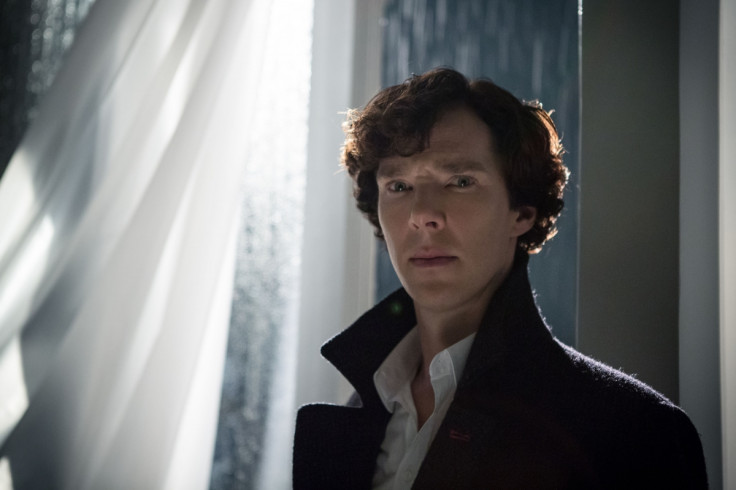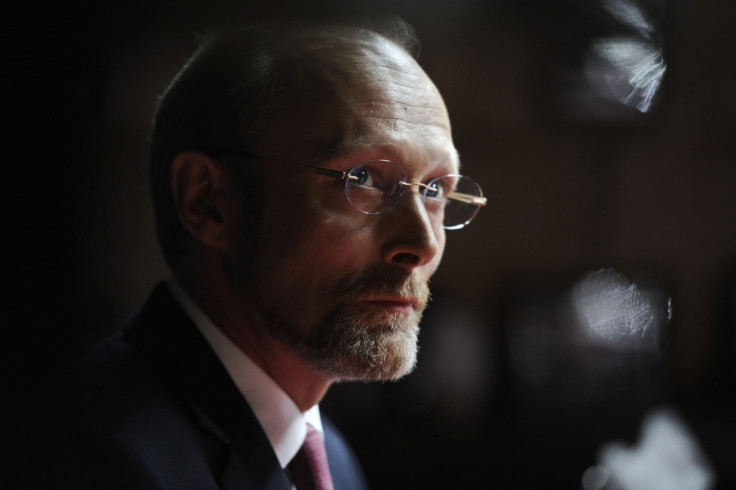Sherlock Season 3 Episode 3 Review: His Last Vow

Only a fortnight on from Sherlock returning to our screens and we have already been served up its final episode for the foreseeable future. But, as is tradition with Sherlock series finales, His Last Vow was a true high point, a Tumblr-crashing spectacular that through its tumultuous twists and turns provided shock after shock.
To reel off a few – Sherlock on drugs, Sherlock having a girlfriend, Mary a killer, Sherlock celebrating Christmas, Sherlock a killer, and of course the return of Moriarty. The rug was pulled up from under our feet so many times that I'm sure most viewers were left stumbling around long after that final message from Moriarty, with writer Steven Moffat here pulling out all the stops in this spellbinding episode to leave us desperate for more.
Charles Augusts Magnussen
Kudos to The Killing's Lars Mikkelsen, who provided a truly unnerving and captivating villain in Charles Augustus Magnussen completely unique from the manic Moriarty, all icy stare and stoic authority. Not that this James Bond-style baddie couldn't resist some showboating. From licking Lady Blackwood's face to peeing in the Baker Street fireplace, the effortless manner in which he marked his "possessions" was truly frightening, and along with the clear Rupert Murdoch comparisons as a man who deals with malicious gossip and character assassinations over fact, also a fitting contrast to Sherlock's desire to deduce the facts from a situation.
Initially outwitting Sherlock before luring him to his secluded Appledore abode, the greatest trick he pulls is in revealing to Sherlock that rather than have a physical collection of information, he stores all the dark secrets he collects in his mind. The typical Moffatian device employed here worked brilliantly, in seeing the Terminator-style point-of-view behind Magnusson's glasses to the later shots of him walking around a library as Sherlock describes his secret vault, we take what we see for granted as truth.
Magnussen revealing his own "mind palace" was a twist cleverly built up by the greater emphasis this year on how Sherlock's brain works, from the courtroom chat room sequence in The Sign of Three, to Sherlock battling his subconscious whilst in shock. It seemed rather fortuitous that even with Mary avoiding the kill shot, Sherlock would just be able to survive, but we were given many great Inception-style moments as Sherlock fights death and tries to regain consciousness whilst sharing a cell with Moriarty in the darkest recess of his mind.
There's Something About Mary
In the end it is his desire to protect John, the last vow he made never to leave him and Mary, that sees Sherlock back on his feet. But he must recover from both the physical shock of his bullet wound and the emotional shock of discovering that John's wife isn't all who she appeared to be.
Recognising a skip code in 'The Empty Hearse' and claiming she was an orphan in 'The Sign of Three', there was always mystery around Mary's true identity. He had detected she was a liar upon first meeting her, but discovering that she is a former spook who has killed people for the CIA is still a huge twist.

Upon reflection it makes perfect sense, with Sherlock pointing out to John that the reason he fell for Mary is that like his friendship with the sleuth and service in Afghanistan, he has always been addicted to danger. Amanda Abbington excelled here in presenting a character who is both treacherous and sympathetic, and Moffat also deserves praise for introducing an important new character who is neither a doting wife to Watson or adversary to Holmes.
The problem is that whilst before Sherlock stood out as the extraordinary character to which everyone else gravitated around, with this episode having Mary, Mycroft and Magnussen all taking centre stage, Martin Freeman's everyman John Watson is increasingly out of place.
"Did You Miss Me?"
It's indicative of the third season in general, which has become more ambitious in both its look and storytelling in order to match the show's new international outlook, but in its self-aware grandiloquence has become less and less grounded. That's not to say that this episode wasn't a freewheeling delight, but from a show that initially excelled due to Cumberbatch and Freeman's odd couple chemistry, it's now Freeman's Watson who is singlehandedly containing the whimsy, but only just.
He might not be the smartest guy in the room (you can now buy his "I don't understand" line on a t-shirt), but my favourite moment of the episode was his painstakingly thought out but touchingly heartfelt line to Mary: "The problems of your past are your business. The problems of your future are my privilege".
If this was the most human moment of the episode, the shocking decision by Sherlock to shoot Magnussen in the head is rather more complex in nature. As soon as Magnussen revealed all the dirty secrets were stored in his mind it made cold common sense to eliminate him, but did Sherlock's justification that he's not a hero but a high functioning sociopath ring true? After making his vow to protect John and Mary, to see Magnussen threaten and belittle his best friend, gleefully flicking him again and again in the face, he was prepared to maintain his vow at whatever the cost.
That cost being a one-way ticket to Eastern Europe to conduct some of the dangerous field work that Mycroft so loathes. But those plans are instantly cancelled when we are served the greatest twist of all, a video transmission across all networks from Sherlock's nemesis Moriarty saying, "Did you miss me?"
The answer of course is yes, but unfortunately the show's return will be no way near as swift as Sherlock's flight. After two years left frantically pondering how Sherlock cheated death, we'll be spending the next two asking how Moriarty did the same.
© Copyright IBTimes 2025. All rights reserved.






















